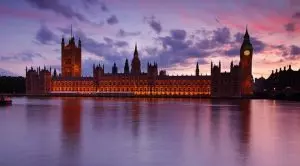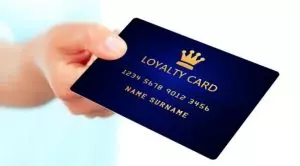 Documents unveiled by the British regulator, the UK Gambling Commission (UKGC), indicate many bookmakers operating in the country rely heavily on problem and high-spending VIP customers. According to the data gathered by the watchdog, such bettors bring in £4 out of every £5 wagered with online gambling operators.
Documents unveiled by the British regulator, the UK Gambling Commission (UKGC), indicate many bookmakers operating in the country rely heavily on problem and high-spending VIP customers. According to the data gathered by the watchdog, such bettors bring in £4 out of every £5 wagered with online gambling operators.
It is a widespread practice in the industry to incentivise losing customers and big spenders by granting them membership in VIP schemes. VIP members are rewarded with different perks like free wagers, cashbacks on their losses, and free tickets for major sporting events.
Customers are usually invited into the schemes after parting with huge amounts of money. In turn, the gambling firms offer them VIP membership to motivate them to continue wagering.
Some betting operators are known to generously offer as much £5,000 in cash bonuses. Others lure high-spending customers with expensive vacations and cruises to exotic destinations to keep them coming back for more betting action.
The Commission’s document is based on data collected from nine gambling firms. The watchdog granted them anonymity but it is understood these are all large and well-known betting companies.
VIPs Contribute a Significant Percentage of the Deposits Made at Betting Sites
 In one instance, a firm admitted to the watchdog that while only 2% of its bettors have a VIP membership, they contribute as much as 83% of the cumulative deposits on the website.
In one instance, a firm admitted to the watchdog that while only 2% of its bettors have a VIP membership, they contribute as much as 83% of the cumulative deposits on the website.
At another company, there were 3% of VIP customers who accounted for 48% of the overall deposits made there. A third operator collected 58% of its total deposits from high-spending bettors who made for 5% of its overall clientèle.
In one section of the Commission’s document, the watchdog expresses concerns that the algorithms online betting firms rely on for spotting wagering patterns are far more efficient at identifying customers who might be eligible for a VIP membership than they are at detecting problem bettors.
The UKGC document suggests around 47,000 UK bettors participate in such loyalty schemes. What is worse, nearly one in ten of them are thought to have a gambling problem. This is roughly 11 times more than the average problem gambling rates among the general population.
Potential VIP Schemes Ban Looms over Betting Operators
 The document also discusses the measures the regulator has suggested to minimize the potential harm that might result from such incentives. Among them are developing a stricter VIP code of conduct, routine checks on operators, limiting the perks high-spending customers are offered, and altogether banning VIP programmes.
The document also discusses the measures the regulator has suggested to minimize the potential harm that might result from such incentives. Among them are developing a stricter VIP code of conduct, routine checks on operators, limiting the perks high-spending customers are offered, and altogether banning VIP programmes.
According to Carolyn Harris, a Member of Parliament who represents the Labour Party, the UKGC report clearly demonstrates that the local gambling industry is heavily reliant on people who struggle to control their gambling.
These practices should be prohibited to prevent problem gambling addicts from pouring their money directly into the coffers of the online betting industry, MP Harris commented.
Bridgit Simmonds, Chairman of the Betting and Gaming Council (BGC), also addressed the disconcerting findings of the report. She stressed the gambling industry recognises the necessity to change loyalty-scheme practices and said the BGC will soon release a review for the new code of conduct.
A potential ban on VIP schemes is not the only change the new year might bring for the UK gambling industry. In November 2019, several Members of Parliament proposed an overhaul of online gambling operators, suggesting that the maximum wager for online slots should be reduced to £2 per spin, similarly to the maximum bet limits imposed on the notorious fixed-odds betting terminals. Restrictions on loyalty programs were also recommended.
- Author


